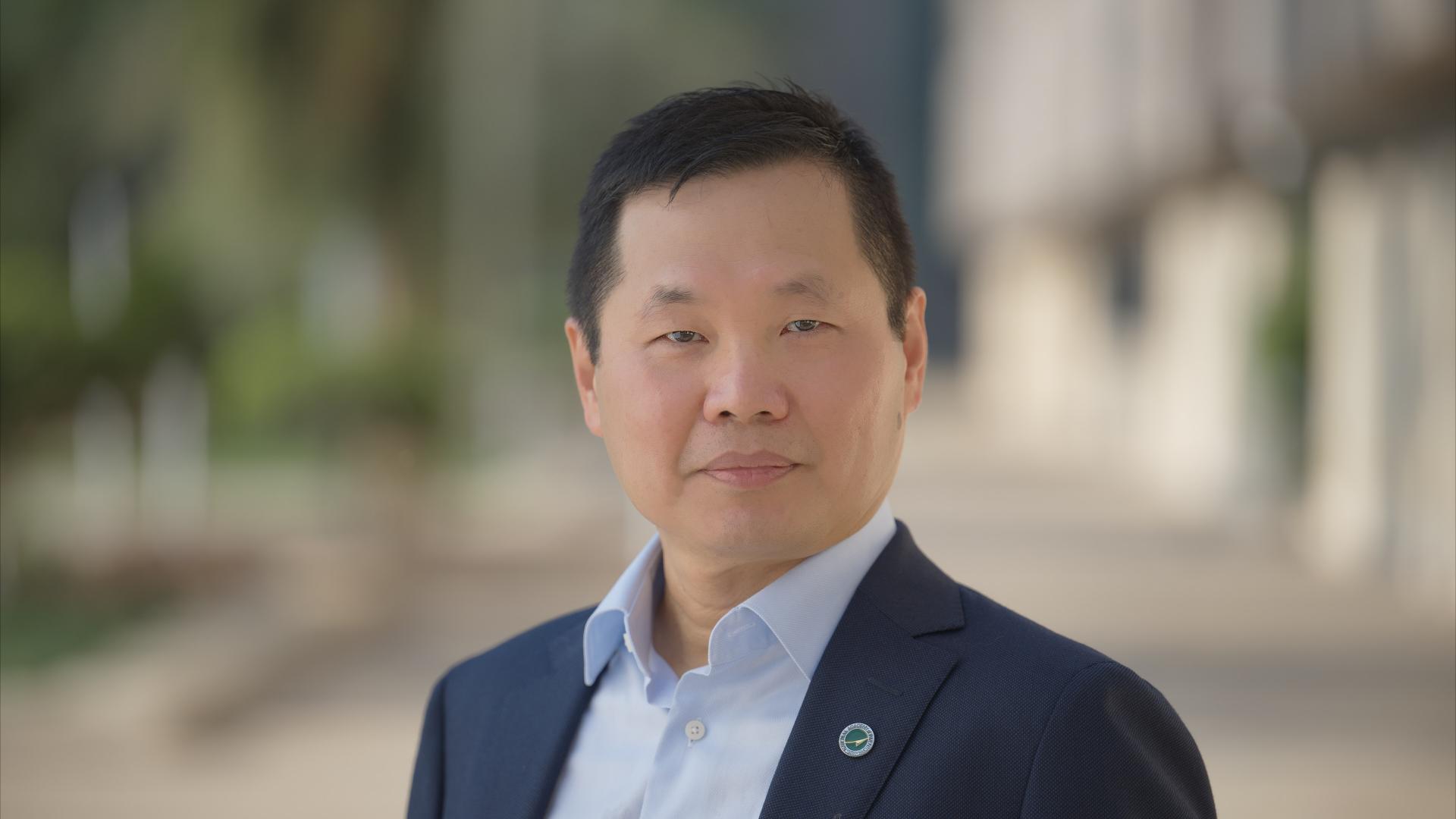By David Murphy
KAUST Professor of Electrical and Computer Engineering Boon S. Ooi has been elected an American Physical Society (APS) Fellow. Ooi was recognized by the Division of Laser Science (DLS) Fellowship—a division within APS that promotes laser science interests—for his "leading contributions to semiconductor photonics integration technology and low-coherence emitters and lasers."
A highly competitive selection process determines who receives fellowship status each year, with fewer than one-half of one percent of the Society’s membership (excluding student members) elected; Ooi was one of the two APS Fellows elected by the DLS this year. With a global APS membership of over 55,000, 148 of his peers were elected to the rank of Fellow in 2024.
According to the APS, the Fellowship Program, created in 1921, “recognize[s] members who may have made advances in physics through original research and publication, or made significant innovative contributions in the application of physics to science and technology.”
Regarding his fellowship, he said: “I am deeply honored to be elected a Fellow of APS, an achievement that reflects years of my team’s dedication to advancing semiconductor photonics integration and laser technology. It is a privilege to be acknowledged among such a distinguished group of physicists, and I am excited to continue contributing to this ever-evolving field.”
Ooi is an elected Fellow of the U.S. National Academic of Inventors (NAI). He is also a Fellow of the Institute of Electrical and Electronics Engineers (IEEE), Optica (formerly The Optical Society of America (OSA)), the International Society for Optics and Photonics (SPIE), and the Institute of Physics (IoP).
A recognized expert
With extensive experience in photonics and optoelectronics, Ooi’s semiconductor photonics device technologies have been widely adopted throughout the photonics industry. His patents have helped several photonics companies manufacture and develop top-of-the-line optoelectronic products and photonics integrated circuits (PICs) for optical communications.
Ooi holds 43 granted U.S. patents. His work in semiconductor photonics has also led to the establishment of several successful startups. One of these companies is now a midsize established company. Prior to joining KAUST in 2009, he co-founded a startup based in California, which he ran for four years, before joining Lehigh University, U.S. At Lehigh, he held a faculty position and headed Leigh’s Photonics and Semiconductor Nanostructure Laboratory from 2003 to 2009.
Ooi has served on several editorial boards, including the IEEE Photonics Journal, OSA Optics Express, and the SPIE Journal of Nanophotonics. He currently serves as Editor-in-Chief of the IEEE Photonics Technology Letters.
Widely regarded as a prominent figure in Saudi Arabia’s optics and photonics community, Ooi has spearheaded numerous initiatives to train and advise Saudi engineers and scientists and promote optics and photonics education at universities throughout the Kingdom.
The former Director of the KACST Technology Innovation Center at KAUST (from 2012 to 2021) also co-founded the in-Kingdom company, AK-Sens. The company focuses on developing photonic sensors for oil, gas, and agricultural applications and was led by Ooi through a recent merger and acquisition.
His recent work on high-speed, high-temperature semiconductor photonic integration for high-performance computing and artificial intelligence applications aligns seamlessly with the Research, Development and Innovation Authority’s vision for “Economies of the Future.”
Another honor for Ooi
Last month, Optica and the Optical Society of Korea named Ooi as the recipient of the 2024 Sang Soo Lee Award. He was honored for “pioneering the field of optoelectronic devices and systems and growing the optics and photonics community in Saudi Arabia.”
Established in 2013, the Sang Soo Lee Award recognizes outstanding individuals who have played a major role in founding or growing a photonics community within a specific population around the world. It honors the late Professor Sang Soo Lee, known as the "Father of Optics" in the Republic of Korea. Lee played a pioneering role in establishing optics in his native country.
“I am deeply grateful to the selection committee, Optica and the OSK for this incredible honor,” Ooi said of his award. “A heartfelt thank you to my former and current students, postdocs, colleagues, collaborators and mentors—this award is as much yours as it is mine.”
